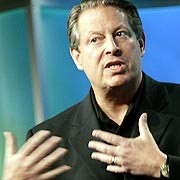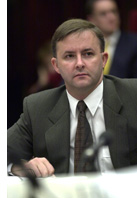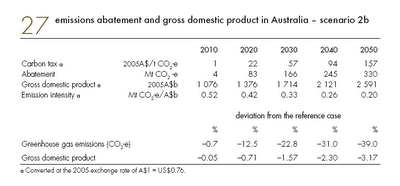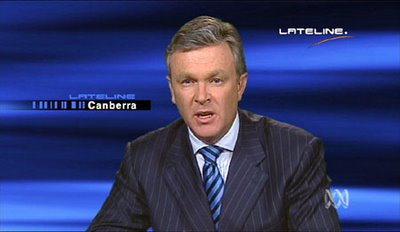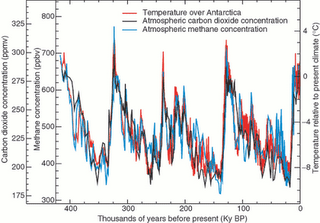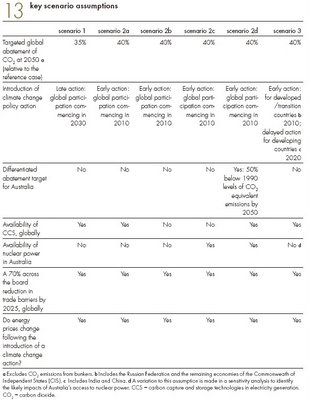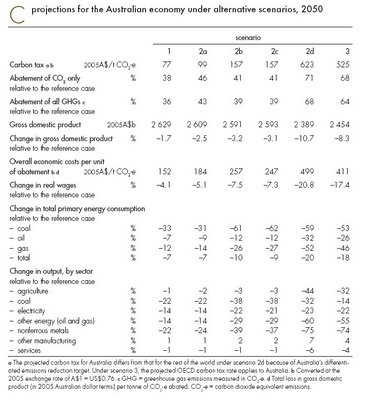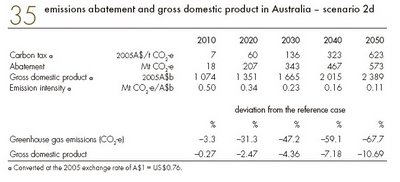Michael Pascoe's unshakable faith in the market
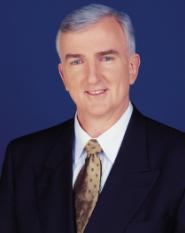
Michael Pascoe is one of the best financial journalists in the country, and he writes some great stuff for Crikey which is generally spot on. He gets it mostly right below, but his unshakable faith in the market will be sorely tested by the twin threats of peak oil and climate change:
We can always go back to whale oilPascoe continues...
Date: Tuesday, 29 August 2006
Michael Pascoe writes:
Competing doomsday scenarios are making life awfully difficult – I can’t decide whether I should be suicidal about burning too many fossil fuels or not enough. Maybe if Tim Flannery, Richard Heinberg and Andrew McNamara can coordinate their apocalyptic visions we’ll happily drown because we have no means of escaping them rising sea levels.
The “peak oil” worrywarts are having a nice run at present, most recently Queensland National Party state MP McNamara on 60 Minutes and about-to-visit professor and book flogger Heinberg in The SMH, never mind Four Corners last month. At Heinberg's extreme, the peak oil folks are forecasting a return to the 19th century with little and expensive travel and we all have to grow our own food in the backyard as civilisation as we know grinds to a halt.
It is the nature of journalism that catastrophic bad news is goods news. But it is also astounding that that there is such a uniform ignorance or calculated ignoring of the great twin realities of our society: the ability of the market mechanism to efficiently allocate resources and our incredible capacity for inventiveness and problem solving.
We’ve gone through “peak oil” before – only then it was whale oil. The truth is that we’re not running out of oil and never will. At a price, we can make all the oil we need. The oil lubricating my car’s delightful engine already is artificial. As crude oil becomes more expensive, we start to use it more efficiently while the economic stimulus leads to product substitution. Oil remains wonderfully cheap, especially in a handful of low-tax countries like Australia, but in time it will become more expensive and we’ll use less per head of population.
Does it end tourism, global trade, the plastics and pharmaceutical industries? Of course not. The scaremongers themselves have no economic incentive to suggest how our incredibly adaptive species will move forward with less oil, but it’s not hard.
For example, the combination of China’s needs, greenhouse pollution and inventiveness means the next generation of nuclear power plants will effectively be mass-produced – modulised and much cheaper. Once you’ve built your nuke plant, the running costs are low and electricity is cheap. Cheap electricity makes the electric car a goer when oil is expensive, but it also provides the power to make alternative fuels – the hydrogen car just one of the possibilities.
There are bugs being trained to eat coal and excrete plastic. If the polyester shirt dies though, no-one will mind. Filling my Alfa with premium might become a luxury just for a special weekend excursion, but that’s a matter of choice. And we can always start farming whales.
Most of this is true. The market mechanism and human ingenuity will find alternative fuels, China will undoubtedly find a way to produce cheap nukes, but we will never find a fuel so wonderfully packed full of energy and so cheap to extract as crude oil.
Every alternative fuel we move to in the future (such as coal-to-oil, tar sands, shale oil) will cost a lot more energy to produce than crude. For example, in the tar sands of Canada they have to dig up a tonne of oily dirt to fill a tank of petrol. Think of the energy required to dig up that dirt, transport it, and refine it into oil. Compare that with the 'Texas Tea' of last century that just gushed out of the ground.
Of course, this has big implications for climate change. If we have to burn the equivalent of a barrel of oil to make two, even the most efficient vehicle is going to put more CO2 in the air per kilometre driven. Because, unlike conventional crude, the fuel cost a lot of energy to produce in the first place, and for the forseeable future that energy is going to come from fossil fuels. Last time I looked I didn't see any electric trucks at a mine site.
EROEI is everything, both in dollar terms, and in terms of CO2 emitted, and nothing beats the EROEI of light sweet crude.
There are some applications such as jet airliners where no-one can envisage an alternative to oil. There are some early experiments happening with compressed hydrogen and fuel-cells but these are more akin to experiments in human or solar-powered flight than a practical replacement for today's jet plane. Besides, hydrogen has nowhere near the energy density of jet fuel (8MJ/L vs 33MJ/L) and that's a pretty fundamental hurdle to overcome.
Yes we can build nukes and wind farms, and we will inevitably electrify transportation (rail will probably make a big comeback) but I don't know what's gonna keep the planes flying, I really don't. Cheap international tourism may indeed become a thing of the past.
Crude oil is a one-shot deal, and we will use it all in a couple of centuries. A blink of the eye in human history.
» read more


